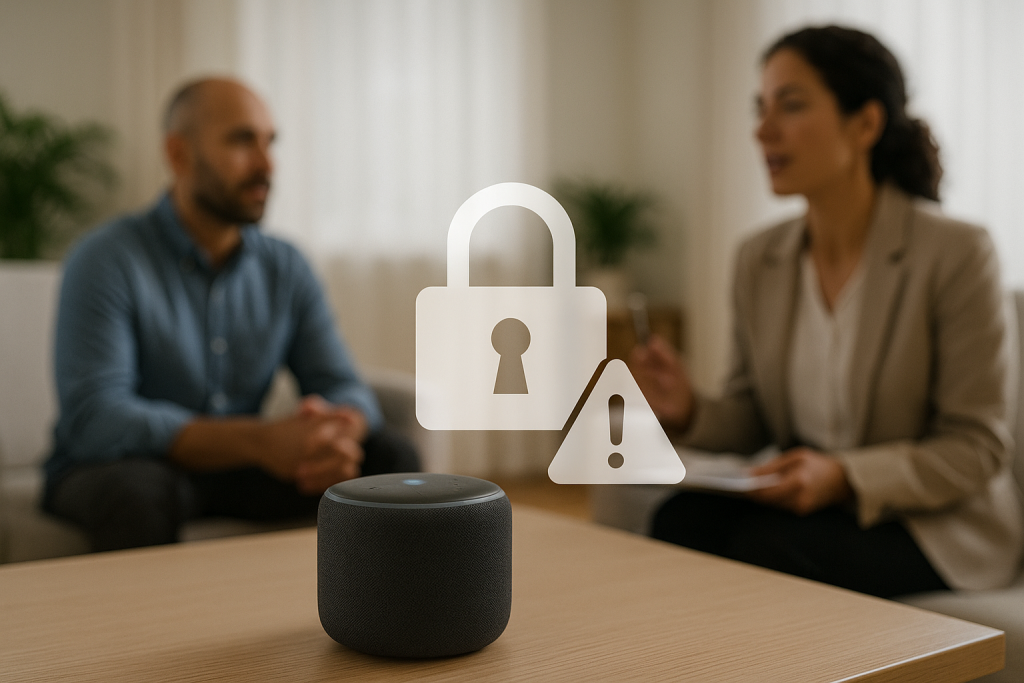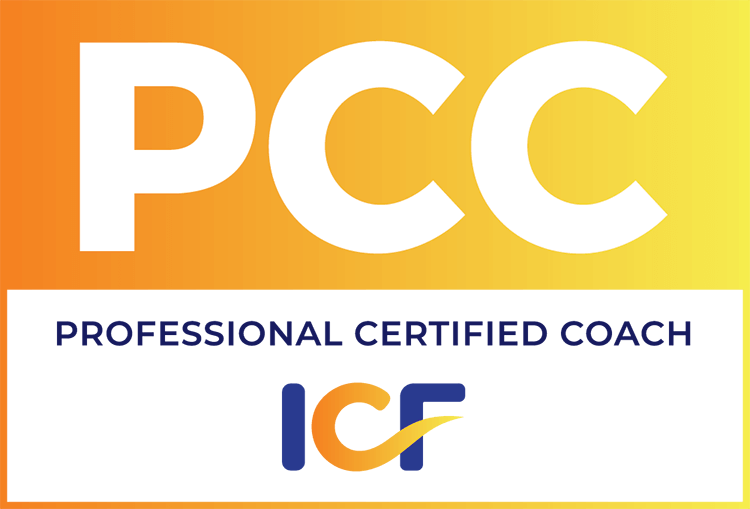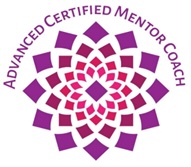In today’s tech-infused world, smart speakers like Amazon Alexa and Google Assistant have become popular office tools. Many of us as professional coaches are integrating these devices into our workspaces to boost our productivity and efficiency. However, as with any technological advancement, using smart speakers in a coaching environment brings both opportunities and challenges—especially when viewed through the lens of ethical standards such as the ICF (International Coaching Federation) Code of Ethics.
In this article, I’ll walk you through the benefits and drawbacks of incorporating smart speakers into your practice, examine the ethical considerations involved, and offer practical strategies for responsible, ethical integration.
Smart Speaker Perks

• Enhanced Efficiency and Convenience
One of the most appealing benefits of smart speakers is their ability to boost our efficiency. Imagine starting your day with a simple voice command that announces your schedule for the day, allows you to quickly send a message to a client or colleague, reminds you of any important tasks or projects you need to address, or even plays soft background music to create a calming environment as you prepare for your sessions.
By streamlining your daily operations, you can create more space for deep, meaningful work with your clients. Here are some very basic examples of voice commands you might use with Google Assistant or Amazon Alexa:
1. Hey Google, what’s on my calendar today?
2. Hey Google, set a reminder for my coaching session at 1 PM.
3. Hey Google, play soft jazz music for 5 minutes.
4. Alexa, add sticky notes to my shopping cart.
5. Alexa, add “prepare coaching notes” to my to-do list.
6. Alexa, help me meditate for 1 minute.
• Accessibility and User-Friendliness
Smart speakers are designed with accessibility in mind. Their intuitive voice interfaces can be especially beneficial for coaches who appreciate a hands-free solution. For instance, a coach with a physical disability might find interacting with voice-activated technology more comfortable than using traditional computer interfaces.
For coaches who rely on multiple tools for managing client information and scheduling, utilizing smart speakers can also help reduce overwhelm and mental fatigue by simplifying and integrating multiple processes. Embracing these tools is one way to honor each coach’s unique needs and preferences, which is certainly in line with the ICF core values.
Smart Speaker Pitfalls

Despite their many benefits, smart speakers do pose significant privacy and confidentiality concerns. These devices are designed to be “always listening,” and this raises the risk of accidentally recording sensitive conversations.
Confidentiality is a cornerstone of the professional coaching relationship, so any risk of unauthorized recording can directly conflict with the ICF Code of Ethics. As professional coaches, we have an ethical obligation to protect our clients’ information, and any accidental recording could expose sensitive data or confidential dialog.
• Data Security Vulnerabilities
Beyond accidental recordings, smart speakers are also susceptible to data security vulnerabilities. Unauthorized access or data breaches can occur if these devices are not adequately secured. Although manufacturers frequently update privacy policies and security features, there is always a risk that a breach could compromise your clients’ confidentiality.
It is crucial for professional coaches to exercise due diligence by regularly reviewing the privacy policies and security updates provided by the device manufacturers. This proactive approach aligns with the ICF Code of Ethics and reinforces the idea that smart ethics involves continuously safeguarding client information against emerging threats.
– You can read more about Alexa Echo privacy here.
– You can read more about Google Assistant privacy here.
Another potential downside of smart speakers is their tendency to be a source of distraction. Whether triggered by background noise or unexpected notifications, any interruption during a coaching session can disrupt the flow of conversation.
Distractions not only disrupt the session but also detract from the coach’s ability to be fully present with the client. This undermines the very core of the coaching relationship. It is essential to maintain an environment that allows for deep, reflective dialogue. Balancing the benefits of ambient technology with the need for a focused, confidential space is a critical component of practicing smart ethics.
Smart Moves for Ethical Integration

• Technology Management
One of the simplest ways to minimize privacy risks is to use the mute function during client sessions. If your smart speaker is not essential for the session itself, consider muting or turning it off to avoid any accidental recording.
Another practical strategy is to place smart speakers in areas dedicated to administrative tasks rather than in the direct coaching space. By limiting their physical presence during sessions, you reduce the risk of distractions and accidental activations while still enjoying the benefits of the technology during other parts of your day.
• Alternative Options
If you would love the benefits of a smart speaker but aren’t comfortable having one in your office, consider using your smartphone’s built-in voice assistant such as Google Assistant, Siri, or Alexa.
These tools can set reminders, manage your calendar, or play your favorite tunes. The bonus is that you maintain complete control—you can activate airplane mode, silence notifications, or even tuck your phone away in a drawer to ensure a distraction-free coaching session.
• Due Diligence and Regular Review
Stay informed about the latest updates regarding privacy features and software enhancements from the manufacturers. As smart speaker technology evolves, new measures may emerge that address current security vulnerabilities. Continually evaluate whether the use of a smart speaker aligns with the ICF Code of Ethics. Making this assessment part of your ongoing professional development demonstrates your commitment to ethical practice.
• Client Communication
Transparency is key. Clearly communicate with your clients about the use of smart technology in your office. Explain how these devices are used, what safeguards are in place, and the measures you take to protect their confidentiality.
This open dialogue builds trust and is in line with the ICF Core Competencies. Additionally, if there is any risk of unintended recording or data capture, consider obtaining explicit consent from your clients. This practice not only adheres to ethical guidelines but also respects the dignity and autonomy of your clients, reinforcing the commitment to smart ethics in every interaction.
Here is a suggestion for a statement you could add to your coaching agreement or policies & procedures document. Please adapt it as you see fit for your own coaching practice.
Your confidentiality is our highest priority. We use smart technology for administrative tasks like scheduling and ambient music, but during coaching sessions, all devices are fully deactivated to ensure a distraction-free, confidential environment. We continuously review and update our security practices to safeguard your information, and we are committed to acting in good faith to protect your confidentiality. If you have any questions or concerns about our use of technology, please feel free to discuss them with us.
Fresh Takes & Future Tech
![]()
• Balanced Approach
Integrating technology into your coaching practice is a balancing act between efficiency and ethical responsibility. For some coaches, the gains offered by smart speakers might justify their use, especially when it can streamline administrative tasks.
However, it is essential to carefully consider the risks and benefits according to your specific practice and client base. You might experiment with these devices in low-risk scenarios outside your coaching space—such as managing your schedule or playing background music during breaks. This can help you assess their impact before fully integrating them into your coaching environment. This approach respects the core ethical principles of our profession.
• Strong Innovative Developments
The landscape of smart speaker technology is rapidly evolving. Future advancements may address many of today’s privacy and security concerns. As manufacturers implement enhanced security protocols, better user controls, and more transparent data handling practices, these devices may become even more attractive for professionals in sensitive fields like coaching.
In the meantime, maintaining an open dialogue with peers can help you stay informed about emerging best practices. Sharing your personal experiences and strategies in professional forums or coaching communities can enrich your own practice while also contributing to the broader conversation on smart ethics and smart tech in coaching.
Summarizing Smart Ethics
Smart speakers represent both an opportunity and a challenge in the modern coaching environment. On one hand, they offer enhanced efficiency, accessibility, and the promise of a more modern, tech-forward workspace. On the other, the potential risks to privacy, data security, and the overall quality of coaching sessions cannot be ignored.
By taking a thoughtful, well-informed approach to integrating smart speakers into your practice, you can harness their benefits while upholding the core ethical standards that define professional coaching. As outlined in the ICF Code of Ethics and reinforced by the ICF Core Competencies, maintaining client confidentiality and fostering a trusting environment is paramount.
This article is part of the Tech-Savvy Coaching series, where I explore various technologies and how they can be integrated responsibly into coaching practices. Stay tuned for more discussions on modern tools and smart ethics in upcoming articles.
Invitation
By thoughtfully balancing efficiency with ethical responsibility, coaches can leverage the power of smart technology to enhance their practice without compromising the trust and confidentiality that are the hallmarks of professional coaching.
What strategies will you adopt as you navigate the evolving landscape of tech-savvy coaching?
I invite you to share your perspectives, concerns, and best practices regarding the use of smart speakers in coaching. Please leave your comments below or reach out to me directly.



